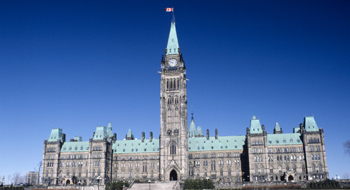
The first cabinet meeting of 2016 kicked off yesterday, and it’s expected the Liberal party will focus on where the Canadian economy is headed in the coming year.
The three-day retreat in New Brunswick will help set the party’s overarching goals for 2016. It will also help lay the strategy the Liberals will use to deal with issues facing the country.
Finance Minister Bill Morneau is expected to give his cabinet colleagues an update on what he’s been hearing in budget consultations, as well as what finance officials have forecasted for 2016 and what it could all mean for the 2016 budget (which will be released in mid- to late March).
House leader Dominic Leblanc, the senior Liberal from New Brunswick, says the budget will honour the party’s campaign commitments—notwithstanding the economic news, which has been “a longstanding concern of the government.”
Cabinet ministers will have a full day of meetings today before Prime Minister Justin Trudeau and a handful of minister travel overseas to Davos, Switzerland, for the World Economic Forum.
Read: Financial industry may not get a say on Trudeau’s first budget
In related news, a recent survey by Nanos Research and Montreal’s Institute for Research on Public Policy finds many Canadians are currently happy with Justin Trudeau’s government and promises so far.
But, an editorial featured by Maclean’s notes Trudeau hasn’t yet made many difficult decisions and that he’s mainly promised more spending when it comes to infrastructure and tax cuts, despite current economic weakness.
Also, he’s proposed several measures to help seniors—along with cancelling Harper’s increase of the retirement age for OAS and GIS, he plans to “link all future increases in seniors benefits to a new Seniors Price Index.
The introduction of a seniors index is most troubling, says Maclean’s, because such an index would be used to “replace the familiar Consumer Price Index when calculating future cost-of-living increases in OAS and GIS. This is bad policy for reasons of evidence, need, consistency and precedent.”
This article was originally published on Benefits Canada‘s companion site, Advisor.ca
